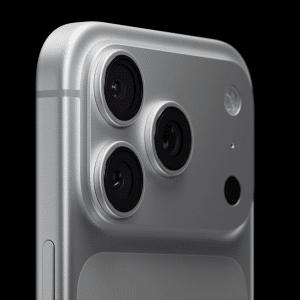
President Barack Obama is expected to tighten restrictions on U.S. spying on foreign leaders and also is considering changes in National Security Agency access to Americans’ phone records, according to people familiar with a White House review of the nation’s surveillance programs.
Obama could unveil his highly anticipated decisions as early as next week. Ahead of that announcement, he is consulting with lawmakers, privacy advocates and intelligence officials who were invited to White House meetings Wednesday and Thursday.
“He’s at that stage still where he’s listening and discussing with a variety of stakeholders and appreciates very much the opinions and counsel he’s getting on this matter,” White House spokesman Jay Carney said.
Among the changes Obama is expected to announce is more oversight of the National Intelligence Priorities Framework, a classified document that ranks U.S. intelligence- gathering priorities and is used to make decisions on scrutiny of foreign leaders. A presidential review board recommended increasing the number of policy officials who help establish those priorities, and that could result in limits on surveillance of allies.
Documents released by former NSA contractor Edward Snowden revealed that the U.S. was monitoring the communications of several friendly foreign leaders, including German Chancellor Angela Merkel. The revelations outraged Merkel as well as other leaders, and U.S. officials say the disclosures have damaged Obama’s relations around the world.
Obama and Merkel spoke by phone Wednesday, but U.S. officials would not say whether they discussed the NSA issues.
The president also is said to be considering one of the review board’s most aggressive recommendations, a proposal to strip the NSA of its ability to store telephone records from millions of Americans and instead have phone companies or a third party hold the records. The NSA would be able to access the records only by obtaining separate court approval for each search, though exceptions could be made for emergency national security matters.
It’s unclear whether Obama will ultimately back the proposal or how quickly it could be carried out if he does.
Before making his final decisions, the president was supposed to receive a separate report from a semi-independent commission known as the Privacy and Civil Liberties Oversight Board, which was created by Congress. However, that panel’s report has been delayed without explanation until at least late January, meaning it won’t reach the president until after he makes his decisions public.
Members of that oversight board did meet with Obama on Wednesday and have briefed other administration officials on some of their preliminary findings. In a statement, the five-member panel said its meeting with the president focused on the NSA phone collection program and the Foreign Intelligence Surveillance Court, which oversees the data sweeps. White House spokeswoman Caitlin Hayden called it a good opportunity for Obama “to hear the group’s views directly as we begin to finalize our internal review.”
It’s unclear why Obama will announce his recommendations before receiving the report from the privacy and civil liberties board. One official familiar with the review process said that some White House officials were puzzled by the board’s delay. But the official said the report probably would still have strong weight in Congress, where legislators are grappling with several bills aimed at dismantling or preserving the NSA’s authority.
That official and those familiar with the White House review insisted on anonymity because they were not authorized to discuss the process by name.
Obama and Vice President Joe Biden also met at the White House with Attorney General Eric Holder and members of the U.S. intelligence community, the White House said, including Director of National Intelligence James Clapper and the heads of the NSA, FBI and CIA. The intelligence community largely supports keeping the NSA surveillance programs intact.
On Thursday, the president will meet with members of Congress, while his top lawyer, Kathryn Ruemmler, will meet with representatives from privacy groups.
Shortly after receiving the review board recommendations last month, Obama signaled that he could be open to significant surveillance changes, including to the bulk collecting of phone records.
“There are ways we can do it, potentially, that gives people greater assurance that there are checks and balances _ that there’s sufficient oversight and sufficient transparency,” Obama said during a Dec. 20 news conference. He added that programs like the bulk collection “could be redesigned in ways that give you the same information when you need it without creating these potentials for abuse.”
The president also has backed the idea of adding a public advocate position to the Foreign Intelligence Surveillance Court which rules on many of the domestic surveillance decisions. The court typically hears only from the government as it decides cases and the advocate would be added to represent privacy and civil liberties concerns.
That review followed disclosures from Snowden, the former government contractor, who leaked details of several secret government programs. Snowden faces espionage charges in the U.S., but has been granted temporary asylum in Russia.
While Obama has said he welcomes the review, it’s unlikely it would have occurred without Snowden’s disclosures.
Added pressure came last month from a court decision by a federal judge in Washington who questioned the phone surveillance program’s constitutionality and called it “almost Orwellian” in scope. In his December ruling, U.S. District Judge Richard Leon said the NSA program appeared to violate 4th Amendment protections against unreasonable searches. But Leon held off issuing a preliminary injunction because of expected appeals.
Late Wednesday, Justice Department lawyers asked Leon to halt further proceedings in his court on the NSA case and a second NSA-related lawsuit until the U.S. Court of Appeals for the District of Columbia Circuit hears the government’s appeal of his ruling.
Government lawyers said they were asking for the judicial stay from Leon because they were concerned that further court proceedings could jeopardize classified information about the surveillance program.
Larry Klayman, the conservative lawyer who filed the suit, has said he plans to ask the U.S. Supreme Court to hear the case.
Associated Press








